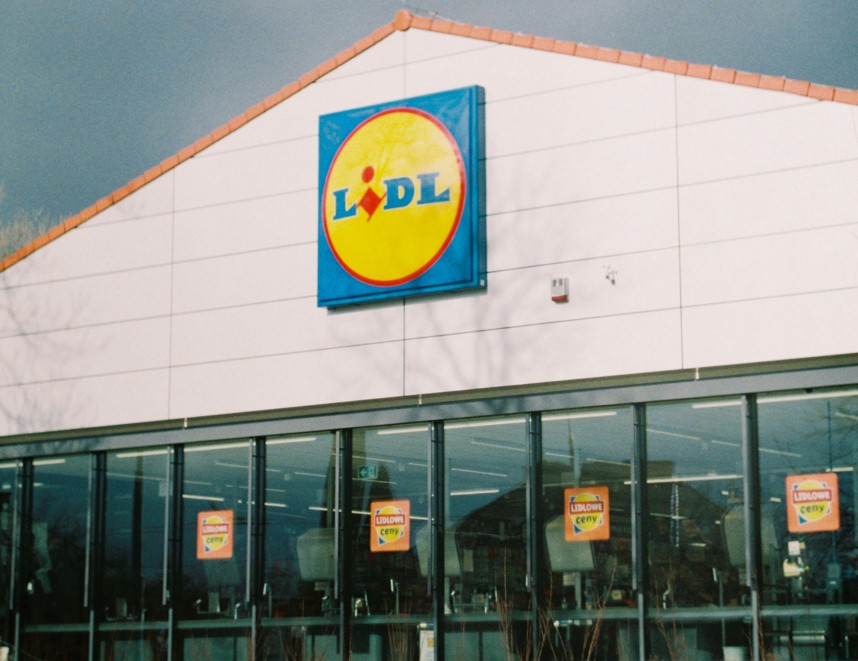#NNPA BlackPress
Lidl supermarket coming to East Baltimore as part of Perkins-Somerset-Oldtown transformation
By Megan Sayles, AFRO Business Writer, msayles@afro.com The East Baltimore community is getting a new grocery store. Lidl is set to become an anchor tenant in the Perkins-Somerset-Oldtown (PSO) Transformation plan. PSO residents have long faced a dearth of walkable, healthy food sources, all the while being able to easily access liquor and corner stores. […]
The post Lidl supermarket coming to East Baltimore as part of Perkins-Somerset-Oldtown transformation first appeared on BlackPressUSA.

By Megan Sayles,
AFRO Business Writer,
msayles@afro.com
The East Baltimore community is getting a new grocery store. Lidl is set to become an anchor tenant in the Perkins-Somerset-Oldtown (PSO) Transformation plan.
PSO residents have long faced a dearth of walkable, healthy food sources, all the while being able to easily access liquor and corner stores. Lidl, which is set to break ground in 2024, will be an oasis among the food desert conditions in the area.
“I can remember coming up in Baltimore, and if you were on Harford and Federal there was a Super Pride. If you were on Patterson Park and Chase, there was another Super Pride. If you were in the Church Square shopping center there was another supermarket,” said Maryland State Sen. Cory McCray (D- Dist. 45). “To watch these supermarkets remove themselves over the period of time that I’ve been living has been challenging. You wrestle with these types of things because you know so many things are tied to lack of access to healthy food options, such as obesity.”
McCray procured capital for the project through his Somerset Grocery Store Initiative, securing $1 million in Maryland’s fiscal year 2023 budget and $300,000 in the state’s FY 2024 budget. As it can be challenging to attract grocers to underserved urban areas, this funding served to incentivize Lidl.
“At the end of the day, they think about their bottom line, and there’s nothing wrong with that. That’s what they’re supposed to do,” said McCray. “You have to have a certain level of density. These problems are not complex on the outskirts of the city in the Northern part of Baltimore. It’s the heart of East Baltimore and West Baltimore where the density is not there.”
The broader PSO Transformation project will deliver more than 1,300 housing units—a fact McCray thinks provides a strong argument for the foot traffic Lidl will experience. He also noted that the grocery store will attract residents from nearby communities, like Johnston Square, Latrobe Homes and McElderry Park.
The family- and minority-owned Henson Development Co. is one of the leading developers on the PSO project and oversaw the deal with Lidl. Principal and vice president Dana Henson began talks with the company in 2017. At that point, the PSO site was mostly grass and dirt.
She said it was difficult to communicate Baltimore’s unique food-shopping habits to the grocer.
“I think unless you live in Baltimore, you don’t really understand the intricacies of Baltimore grocery shopping. I’ve lived in other cities as well, and we’re different here,” said Henson. “When I’ve lived in other cities, I shop at the grocery store closest to me, but I find that in Baltimore, we shop all over. We go to different grocery stores to get different things.”
Henson thinks by 2019, Lidl began to see and understand her vision. At that point, Henson Development Co. had opened the first section of Somerset Homes at 1234 McElderry St.
“I think it was more real for them to be able to see the project that I was previously showing them on paper,” said Henson. “Then they could also see that we were coming out of the ground on two other buildings because we started two and three around the same time.”
When the deal was finalized, she said it was difficult to relax after being entrenched in day-to-day negotiations for so long. But she said now is when the real work begins.
“I think developing at a high level for us, especially in the affordable sector, is important. But, to me, being able to provide healthy food to this area is one of the most impactful things that we can do. It’s long overdue,” said Henson. “I think it’s more than just providing a grocer to the area. It’s providing a full-service grocery store to a food desert, and it’s a proud achievement. It’s also delivering on the promises made to the community since 2015.”
Megan Sayles is a Report For America corps member.
The post Lidl supermarket coming to East Baltimore as part of Perkins-Somerset-Oldtown transformation appeared first on AFRO American Newspapers .
This article originally appeared in The Afro.
The post Lidl supermarket coming to East Baltimore as part of Perkins-Somerset-Oldtown transformation first appeared on BlackPressUSA.
#NNPA BlackPress
Remembering George Floyd
#NNPA BlackPress
OP-ED: Oregon Bill Threatens the Future of Black Owned Newspapers and Community Journalism
BLACKPRESSUSA NEWSWIRE — Nearly half of Oregon’s media outlets are now owned by national conglomerates with no lasting investment in local communities. According to an OPB analysis, Oregon has lost more than 90 news jobs (and counting) in the past five years. These were reporters, editors and photographers covering school boards, investigating corruption and telling community stories, until their jobs were cut by out-of-state corporations.

By Dr. Benjamin F. Chavis, Jr.
President and CEO, National Newspaper Publishers Association
For decades, The Skanner newspaper in Portland, the Portland Observer, and the Portland Medium have served Portland, Oregon’s Black community and others with a vital purpose: to inform, uplift and empower. But legislation now moving through the Oregon Legislature threatens these community news institutions—and others like them.
As President and CEO of the National Newspaper Publishers Association (NNPA), which represents more than 255 Black-owned media outlets across the United States—including historic publications like The Skanner, Portland Observer, and the Portland Medium—l believe that some Oregon lawmakers would do more harm than good for local journalism and community-owned publications they are hoping to protect.
Oregon Senate Bill 686 would require large digital platforms such as Google and Meta to pay for linking to news content. The goal is to bring desperately needed support to local newsrooms. However, the approach, while well-intentioned, puts smaller, community-based publications at a future severe financial risk.
We need to ask – will these payments paid by tech companies benefit the journalists and outlets that need them most? Nearly half of Oregon’s media outlets are now owned by national conglomerates with no lasting investment in local communities. According to an OPB analysis, Oregon has lost more than 90 news jobs (and counting) in the past five years. These were reporters, editors, and photographers covering school boards, investigating corruption, and telling community stories, until their jobs were cut by out-of-state corporations.
Legislation that sends money to these national conglomerate owners—without the right safeguards to protect independent and community-based outlets—rewards the forces that caused this inequitable crisis in the first place. A just and inclusive policy must guarantee that support flows to the front lines of local journalism and not to the boardrooms of large national media corporations.
The Black Press exists to fill in the gaps left by larger newsrooms. Our reporters are trusted messengers. Our outlets serve as forums for civic engagement, accountability and cultural pride. We also increasingly rely on our digital platforms to reach our audiences, especially younger generations—where they are.
We are fervently asking Oregon lawmakers to take a step back and engage in meaningful dialogue with those most affected: community publishers, small and independent outlets and the readers we serve. The Skanner, The Portland Observer, and The Portland Medium do not have national corporate parents or large investors. And they, like many smaller, community-trusted outlets, rely on traffic from search engines and social media to boost advertising revenue, drive subscriptions, and raise awareness.
Let’s work together to build a better future for Black-owned newspapers and community journalism that is fair, local,l and representative of all Oregonians.
Dr. Benjamin F. Chavis Jr., President & CEO, National Newspaper Publishers Association
#NNPA BlackPress
Hate and Chaos Rise in Trump’s America
BLACKPRESSUSA NEWSWIRE — Tactics ranged from local policy manipulation to threats of violence. The SPLC documented bomb threats at 60 polling places in Georgia, traced to Russian email domains.

By Stacy M. Brown
Black Press USA Senior National Correspondent
The Southern Poverty Law Center has identified 1,371 hate and antigovernment extremist groups operating across the United States in 2024. In its latest Year in Hate & Extremism report, the SPLC reveals how these groups are embedding themselves in politics and policymaking while targeting marginalized communities through intimidation, disinformation, and violence. “Extremists at all levels of government are using cruelty, chaos, and constant attacks on communities and our democracy to make us feel powerless,” said SPLC President Margaret Huang. The report outlines how hard-right groups aggressively targeted diversity, equity, and inclusion (DEI) initiatives throughout 2024. Figures on the far right falsely framed DEI as a threat to white Americans, with some branding it a form of “white genocide.” After the collapse of Baltimore’s Francis Scott Key Bridge, a former Utah legislator blamed the incident on DEI, posting “DEI = DIE.”
Tactics ranged from local policy manipulation to threats of violence. The SPLC documented bomb threats at 60 polling places in Georgia, traced to Russian email domains. Similar threats hit Jewish institutions and Planet Fitness locations after far-right social media accounts attacked them for trans-inclusive policies. Telegram, which SPLC describes as a hub for hate groups, helped extremists cross-recruit between neo-Nazi, QAnon, and white nationalist spaces. The platform’s lax moderation allowed groups like the Terrorgram Collective—designated terrorists by the U.S. State Department—to thrive. Militia movements were also reorganized, with 50 groups documented in 2024. Many, calling themselves “minutemen,” trained in paramilitary tactics while lobbying local governments for official recognition. These groups shared personnel and ideology with white nationalist organizations.
The manosphere continued to radicalize boys and young men. The Fresh & Fit podcast, now listed as a hate group, promoted misogyny while mocking and attacking Black women. Manosphere influencers used social media algorithms to drive youth toward male-supremacy content. Turning Point USA played a key role in pushing white nationalist rhetoric into mainstream politics. Its leader Charlie Kirk claimed native-born Americans are being replaced by immigrants, while the group advised on Project 2025 and organized Trump campaign events. “We know that these groups build their power by threatening violence, capturing political parties and government, and infesting the mainstream discourse with conspiracy theories,” said Rachel Carroll Rivas, interim director of the SPLC’s Intelligence Project. “By exposing the players, tactics, and code words of the hard right, we hope to dismantle their mythology and inspire people to fight back.”
Click here for the full report or visit http://www.splcenter.org/resources/guides/year-hate-extremism-2024.
-

 #NNPA BlackPress3 weeks ago
#NNPA BlackPress3 weeks agoMLK Bust Quietly Removed from Oval Office Under Trump
-

 Activism4 weeks ago
Activism4 weeks agoOakland Post: Week of April 30 – May 6, 2025
-

 Activism3 weeks ago
Activism3 weeks agoOakland Post: Week of May 7 – 13, 2025
-

 #NNPA BlackPress3 weeks ago
#NNPA BlackPress3 weeks agoTrump Abruptly Fires First Carla Hayden: The First Black Woman to Serve as Librarian of Congress
-

 Activism2 weeks ago
Activism2 weeks agoNew Oakland Moving Forward
-

 Activism2 weeks ago
Activism2 weeks agoAfter Two Decades, Oakland Unified Will Finally Regain Local Control
-

 Activism2 weeks ago
Activism2 weeks agoOakland Post: Week of May 14 – 20, 2025
-

 Alameda County2 weeks ago
Alameda County2 weeks agoOakland Begins Month-Long Closure on Largest Homeless Encampment


















































